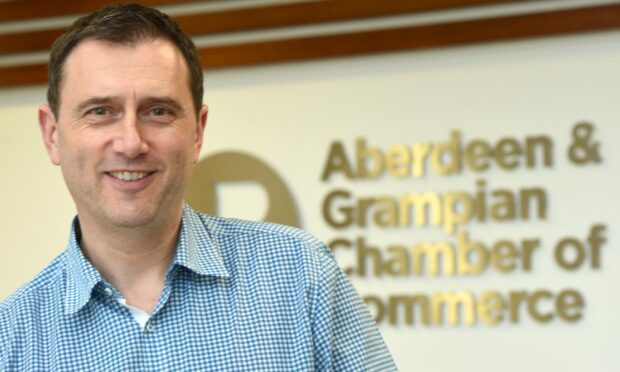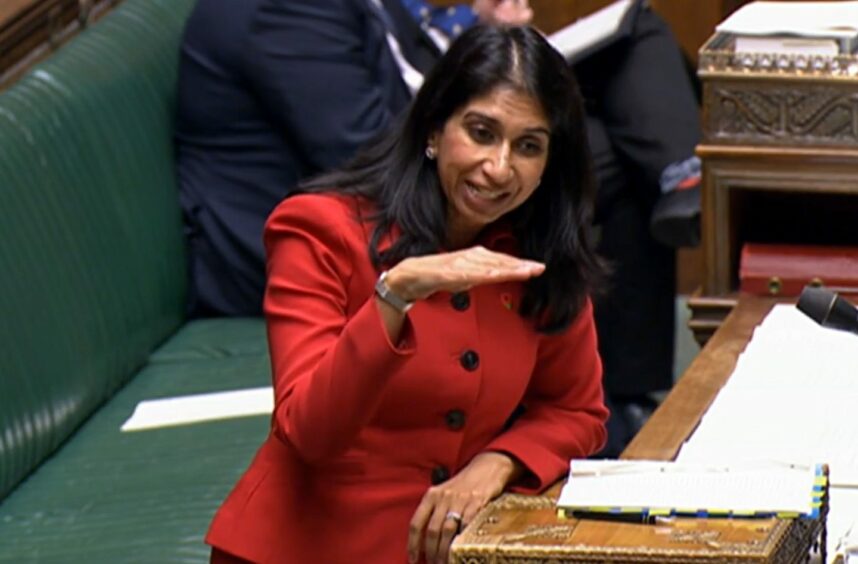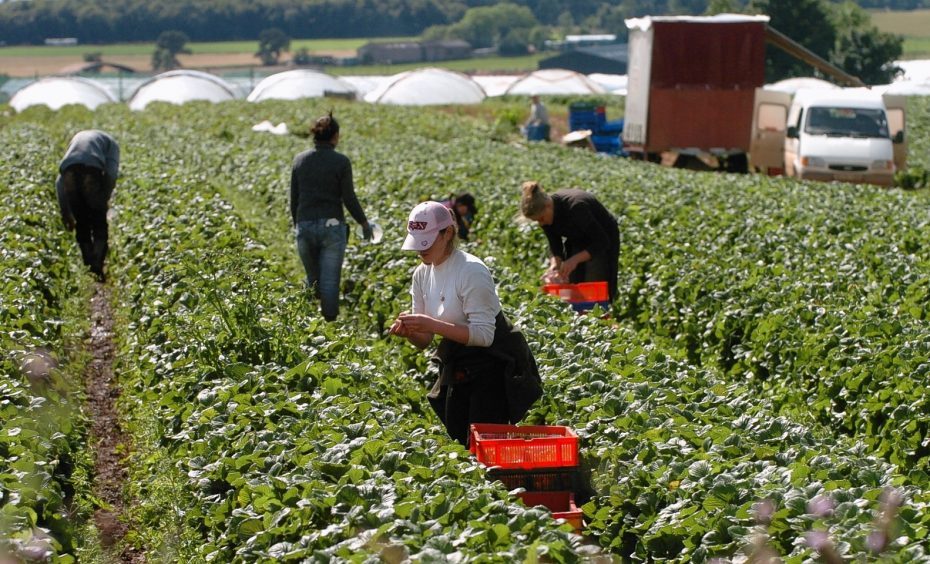My job involves speaking to a lot of people in the business community and it’s one of the things I like most.
Across the length and breath of our wonderful region, we have more than 1,200 member companies, and I try hard to speak to as many of them as regularly as possible.
There is one common theme running through all these conversations – a chronic lack of people.
It is a problem which I can’t see getting any easier under the current system we are stuck with.”
A lack of chefs to work in our restaurants, a lack of people to work in our care homes and a lack of skilled technicians to work on our offshore oil and gas platforms.
It is a problem impacting every part of our economy. It is a problem which is holding us back.
And, regrettably, it is a problem which I can’t see getting any easier under the current system we are stuck with – one where we have a visa system designed for the south of England.
Scottish unemployment ‘at record low levels’
A recent speech by Home Secretary Suella Braverman summed this up. Rather unhelpfully, she called for further curbs on immigration and decried “unsustainable” levels of people coming to the UK.
Her comments were directly at odds with economic reality in Scotland, with recent figures showing unemployment at record low levels of just 3% and an extremely tight labour market holding business back.
The rate of job vacancies in Scotland remains very high in historic terms, compared to the supply of available workforce to fill vital roles.
Meanwhile, the long-running Royal Bank of Scotland purchasing managers’ index shows the pace of job creation by businesses at its fastest level since October 2021.
It also showed the further expansion of firms is likely to be hampered by poor availability of staff.
Last year’s Scotland’s Urban Age report, jointly commissioned by Aberdeen, Glasgow and Edinburgh chambers of commerce, recommended immigration policy should be devolved to ensure Scotland’s cities and regions have access to the workforce they need to prosper.
Talk of skyrocketing immigration ‘deeply unhelpful’
The home secretary should avoid looking at the UK-wide immigration and skills picture through a London lens. She should instead engage closely with the Scottish Government and local authorities to understand the wider situation.
Talk of skyrocketing and “unsustainable” levels of immigration are deeply unhelpful when Scotland’s economy desperately needs to increase its working age population.
In a number of key sectors – from engineering, teaching and healthcare, and tourism and hospitality to agriculture and many other industries at the heart of Scotland’s economy – there are simply more jobs than there are people to fill them.
Scotland’s labour market continues to be extremely tight and while businesses want to grow, they are being held back by a lack of available people.
We want to see sensible, well-thought-out policy developed by the UK Government based on what Scotland actually needs, not on what they think voters in other parts of Britain want to hear.
Such a system should, of course, be one with puts training and upskilling of our existing workforce at its heart. But it should also be pragmatic in terms of who we need to attract to live and work here to ensure continued growth and prosperity over the long term.
One-size-fits-all approach ‘may no longer be fit for purpose’
Human mobility and migration is often misunderstood or misrepresented in the debate on urbanisation and city development. What might be the right policy for one part of the UK could be the wrong policy for another part. I think this is where we are right now.
A one-size-fits-all approach may no longer be fit for purpose. A flexible, devolved approach to immigration which allows our regions to meet their human capital needs as they emerge is required. It’s time for a fundamental change.



Conversation